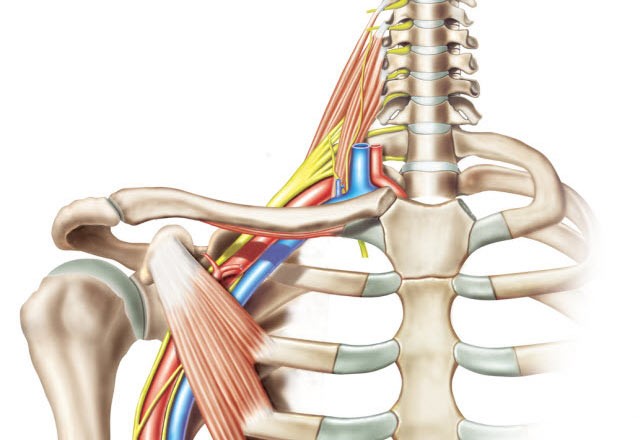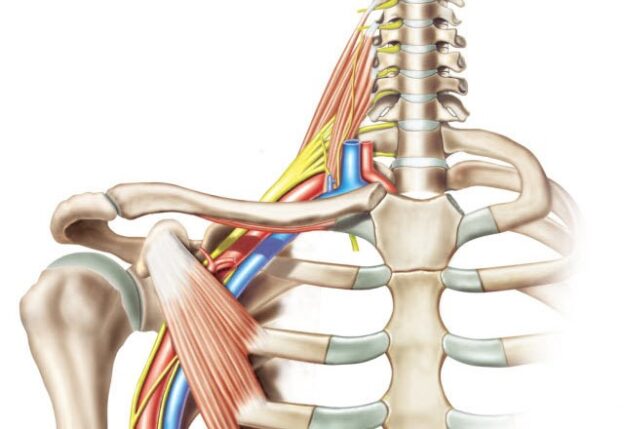The Best Peripheral Nerve Surgery Treatment in Guntur
People with peripheral nerve problems, such as entrapment neuropathies, acute nerve injuries, and nerve sheath tumors, undergo peripheral nerve surgery to restore function and reduce pain and impairment. The surgery entails rerouting healthy nerves to take over the function of nerves damaged, diseased, or otherwise compromised by disease, injury, or condition.
Peripheral nerves connect the spinal cord and brain to the rest of the body. Peripheral nerve problems damage one or more nerves and can impair communication from the brain to the rest of the body. However, one can treat them by undergoing peripheral nerve surgery at the best neurology hospital in Guntur- Dr. Rao’s Hospital. Dr. Rao’s Hospital is the best peripheral nerve surgery hospital in Guntur. Dr. Mohana Rao Patibandla, the founder of Dr. Rao’s Hospitals, is an accomplished neurosurgeon with experience handling complex neurosurgery cases, including peripheral nerve surgery.
What is Peripheral Nerve Surgery used for?

More than a hundred diseases, injuries, and disorders can be treated with peripheral nerve surgery. Here are a few examples:
Traumatic nerve injury:
Traumatic nerve injury causes acute, unremitting pain, burning sensations, tingling, or entire loss of sensation in the body area affected by the injured nerve.
• Injury to the Accessory Nerves in the Spine:
The spinal accessory nerve travels from the brain to the trapezius and sternomastoid muscles in the neck, allowing them to move. A spinal accessory nerve injury that results from trauma or damage during surgery may cause shoulder pain, “winging” of the shoulder blades, and paralysis of the trapezius muscle.
• Brachial plexus injury:
A brachial plexus injury (BPI) or brachial plexus lesion is an injury to the brachial plexus, the network of nerves that transmits impulses from the spinal cord to the shoulder, arm, and hand. A traumatic brachial plexus injury causes abrupt nerve damage in the shoulder, arm, or hand, which can result in weakness, loss of feeling, or loss of mobility.
• Carpal tunnel syndrome:
The compression of the median nerve as it travels through the carpal tunnel in the wrist causes carpal tunnel syndrome (CTS), a medical condition. The most common symptoms are pain, numbness, and tingling in the thumb, index finger, middle finger, and thumb side of the ring finger. Symptoms usually appear gradually and in the middle of the night.
• Tarsal tunnel syndrome:
Tarsal tunnel syndrome is a pinching of the posterior tibial nerve that causes symptoms anywhere along the nerve’s route, from the inside of the ankle to the bottom of the foot.
Carpal tunnel syndrome, which affects the wrist, is comparable to tarsal tunnel syndrome.
• Thoracic outlet syndrome:
Thoracic outlet syndrome is a set of conditions caused by compression of blood vessels or nerves in the region between the collarbone and the first rib (thoracic outlet). It might result in shoulder and neck pain, as well as numbness in the fingers.
• Peroneal nerve injury:
An injury to the peroneal nerve is the most prevalent cause of foot drop. The peroneal nerve runs from the back of the knee to the front of the shin and is a sciatic nerve branch. Since it is so close to the surface, it is vulnerable to destruction.
Ulnar nerve neuropathy, Bernhard-Roth syndrome, Guillain-Barre syndrome, Schwannoma, neurofibroma, and other disorders can all be treated with peripheral nerve surgery.
Are you suffering from any of the above conditions?
Then, visit Dr. Rao’s Hospital to consult a peripheral nerve surgery doctor in Guntur. Our hospital has experienced neurosurgeons like Dr. Mohana Rao Patibandla, a fellowship-trained peripheral nerve surgeon from the USA.
Our medical team will analyze your situation to see whether there is an underlying medical disease that must be addressed first or if your nervous system can heal independently. According to The Times of India coverage.
Suppose you and the doctor decide to go ahead with surgery. In that case, our doctors may conduct electromyography (EMG) testing in the operating room to see if your scarred nerves are healing correctly.
What procedures are carried out during peripheral nerve surgery?
At Dr. Rao’s Hospital in Guntur, we carry out the following procedures during peripheral nerve surgery:
• Nerve Transfers:
A nerve transfer is a neurosurgery treatment that allows paralyzed shoulders and arms to restore function. When the brachial plexus is injured in a car accident, it can cause partial or complete arm paralysis.
A typical nerve is extracted from its muscle and put into the muscle where the nerve has been injured, restoring the function of the vital muscle.
• Nerve Repair:
The severed ends of lacerated nerves are sutured back together during surgery. Nerve lacerations happen when a nerve is pierced by a sharp object like glass, metal, or a knife, as in stab wounds.
• Nerve Graft Repair:
Nerve graft repair is the grafting of a nerve into a gap left by the surgical removal of a nerve end. Nerve grafts can be extracted from another area of the body’s sensory nerve.
• Decompression Surgery for Nerves:
If physical therapy and splinting do not help, this surgical treatment is used to treat peripheral nerve entrapment. It entails dividing or removing tissues that pressure the nerves, such as bone growth caused by arthritis or muscular hypertrophy caused by overuse. Although this technique instantly relieves symptoms, complete healing may take weeks to months.
Nerve sheath tumor excision:
This operation focuses on eliminating the tumor while maintaining the nerves. Along with tumor excision, nerve repair surgery is also conducted.
How long does it take to get back on your feet after surgery?
Patients can usually return to work and everyday activities two weeks after the treatment, but full recovery can take months.
What are the benefits of peripheral nerve surgery?
For patients with nerve injuries, this procedure can help in the following ways:
- Help restore sensation
- Reduce pain
- Assist in regaining motor function
What is the cost of peripheral nerve surgery?
You need not worry about the cost of peripheral nerve surgery in Guntur. You can get cost-effective treatment at Dr. Rao’s Hospital, Guntur. We are one of the top neurology hospitals in Guntur. Our team of experienced neurosurgeons has performed many successful peripheral nerve surgeries.
So, are you planning to undergo peripheral nerve surgery? Then visit Dr. Rao’s Hospital, the best neurology hospital in Guntur, now! In a recent India today article.
Dr. Rao’s Contact Information:
- Phone: 9010056444, 9010057444
- Email: info@drraoshospitals.com
- Address: Old Bank St, GV Thota, beside AK Biryani Point, Guntur, Andhra Pradesh 522001
- Website: Dr. Rao’s Hospital


